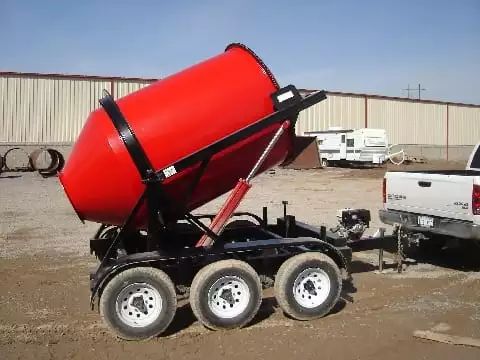Operating a batching plant, whether stationary or mobile, involves handling heavy equipment, and potentially hazardous material. Safety is not just a regulatory requirement, it is essential for keeping operations efficient and workers protected.
Whether you’re managing a fixed concrete plant or a mobile plant on a remote site, implementing best practices can prevent
- Accidents
- Reduce downtime
- Ensure compliance with strict industry standards
This blog post will share ten safety practices that if executed right helps in smoothly operating a plant while mitigating the risk of accidents. Keep reading to learn and fully understand these practices.
1. Comprehensive Safety Training
One of the most important crucial plant safety practices is proper training. It is important that every worker should undergo batch plant safety training so that they know exactly what they are working with.
This training should cover operation protocols, potential hazards, and most importantly the emergency procedures. Training must be updated with time so that staff can learn how to manage new equipment or site-specific risks.
2. Wear the Right Personal Protective Equipment (PPE)
All staff must use personal protective equipment for plants that should include high-visibility clothing, hard hats, safety boots, and dusk mask or protection. PPE is the first line of defense against many on-site hazards.
3. Conduct a Batch Plant Safety Checklist Daily
People think that routine checks are not important and so they are not necessary. This is not the case. Before any shift, a batch plant safety checklist should be completed to verify the status of electrical systems mixers, belts, silos, emergency stops, and safety signage.
Proactive inspection helps spot problems before they can cause any sort of harm or pain to the workers at the site.
4. Adhere to Concrete Plant Safety Regulations
Never undermine the safety regulations. You must adhere to the concrete plant safety regulations that ensure not only legal compliance but also ensure that a safe work culture can be adopted.
This includes proper signage, lockout/tagout procedures, dust control systems, and clear demarcation of pedestrian and vehicle paths.
5. Maintain the Equipment Properly
Batching plant maintenance safety is critical. Poorly maintained mixers,conveyors, or hoppers can result in mechanical failure or injury.
Follow manufacturer guidelines for routine servicing and never bypass maintenance schedules. Never think that the machine is working fine so that you can miss the deadline and do not get the machine checked as in the long-run it can have a big impact on the efficiency of the plant.
6. Plan for Emergencies
Every site should have batch plant emergency procedures done so that your workers know what they have to do in a situation of emergency, instead of panicking and getting depressed.
Workers must know evacuation roots, fire safety protocols, and most importantly first-aid procedures. Emergency drills should also be conducted regularly so that readiness can be ensured.
7. Minimize Manual Handling
When automation is used so that the risk of injury is reduced. Where possible, limit manual handling of raw materials.
In modern concrete batching plants, automated feeding systems not only improve efficiency but also cut down on strain-related injuries.
8. Keep the Work Area Clean and Organized
When working on practical grounds and real realms, clutter and spills are often overlooked, but they can pose real risks. A tidy batching area improves visibility, reduces slips, and falls incidents.
It also ensures better control over the batching process, which contributes to concrete plant hazard prevention.
9. Use Technology to Enhance Safety
Smart sensors and remote control systems can reduce direct human interaction with hazardous areas.
Investing in tech-forward systems is particularly helpful if you’re considering a mobile batch plant, which may operate in isolated or demanding environments. Explore our range of mobile batch plants here.
10. Foster a Culture of Safety Compliance
Safety starts with people. Leadership must champion batch plant safety compliance through daily reinforcement, and quick corrective action when any unsafe behavior is observed.
Creating a reporting system that encourages the workers to flag their risks without any fear of penalty.
Frequently Asked Questions (FAQs)
Q: How often is it recommended to maintain batch plant equipment?
A: There is no general recommendation when it comes to maintenance, but it is important to keep checking the equipment often as recommended by the guidelines shared by the manufacturer which are most of the times done on a daily basis. If dealing with large projects, checking them daily is recommended.
Q: What is a batching plant?
A: A batching plant is the site where various materials like cement, water, and aggregates are mixed to concrete.
Q: Why is safety important when working with a batching plant?
A: Safety is important because of heavy machinery, moving parts, and high-risk materials. Without proper safety practices accidents and equipment damage are more likely to happen.
Q: Are mobile batch plants safe to operate in remote areas?
A: Yes, mobile batch plants are safe to operate in remote areas, but only if the right protocols and facts are considered and executed the right way.
Final Thoughts
Operating a concrete batch plant for sale is not only about efficiency and output. It is more about protecting your workforce and the environment they work in. The 10 concrete batching plant safety practices that are shared in this article not only avoid risk but also promote increased improvement in the work.

